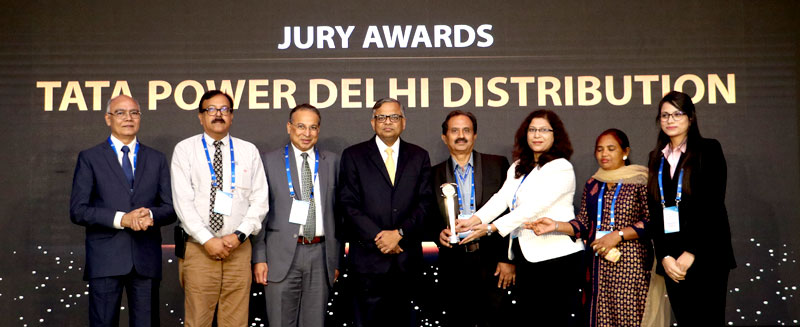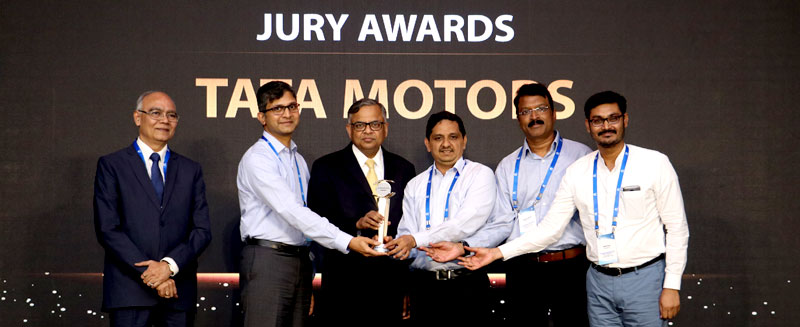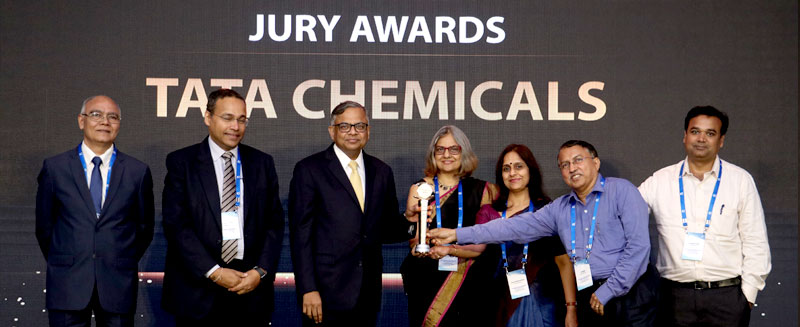Published on September 27, 2019
The annual Tata Affirmative Action Programme (TAAP) Convention held at Taj Mahal Palace, Mumbai on September 16, 2019, brought together senior leaders and managers from across the Tata group, including Group Chairman N Chandrasekaran, and CEOs, CSR Heads, Procurement Heads and HR Heads of various Tata companies. The intent of TAAP Convention is not only to celebrate and recognise the good work happening in Tata ecosystem under TAAP, but also to reflect, debate, discuss, intellectualise and sensitise the wider audience on this subject.
S Padmanabhan, Executive Chairman, Tata Business Excellence Group, set the context by throwing light on framework, trends and outcomes related to TAAP. He highlighted that this group wide initiative has not only benefitted the AA community, but also created value for many Tata companies.
Following Mr Padmanabhan’s address, the Keynote Speaker, Dr Pratap Bhanu Mehta, University Professor, Ashoka University, gave an external perspective on why and how Dalits and Tribals have been left behind in the India’s development story and what should be the role of business enterprise for addressing these social issues and challenges. Next up, Dr R. A. Mashelkar, Chairman of the TAAP Governing Council, articulated the success of the AA programme and emphasised on the need for greater momentum in the Es-Entrepreneurship and Employment.
The most coveted award of the TAAP initiative, the TAAP Jury Award, was then presented to companies that crossed the 600-band in the TAAP assessment process in 2019: Tata Chemicals, Tata Motors, and Tata Power Delhi Distribution.
The awards ceremony was followed by the address from Group Chairman Mr Chandrasekaran, who congratulated all the winning companies and acknowledged their work under TAAP. He expressed happiness at the accomplishments of various companies in the last few years in terms of social inclusion and outcomes, and encouraged 100% participation from the companies in TAAP. He also emphasised on the concept of One Tata to scale up initiatives and programmes for a wider impact.
Then, Trent and TCS shared case studies related to AA initiatives run in their respective companies. Sanjay Rastogi, CHRO, Trent, threw light on Trent AA’s journey on employment. He, along with Pratik and Neelam, colleagues who were employed through Trent’s AA Programme, gave a brief account of the mutual benefits that the AA community as well as Trent reaped from TAAP. Mr. Siganporia, Head – Talent Acquisition, TCS, explained the company’s AA initiative of embedding social inclusion in its hiring strategy under the BPS space. Two TCS colleagues, Jeya Vignesh and Sunny Nikale, also threw light on the benefits they have derived from TCS’s support.
Next on the agenda were the awards for Significant Adoption. Tata Sponge was awarded for crossing an overall score of 550 for the first time in TAAP Assessments. Tata Power Delhi Distribution was bestowed the award in the category of Employment and Entrepreneurship, while Tata Steel Processing and Distribution was given the award for Entrepreneurship. Tata Chemicals won the award for Employability and Education, while Indian Hotels bagged it for Employability.
A panel discussion on ‘Reflections – Issues and Challenges with TAAP’ was up next. Anchored by B Muthuraman, Member of the TAAP Governing Council, the panel included Dr Narendra Jadhav, Member of the TAAP Governing Council; R Mukundan, MD & CEO, Tata Chemicals; and Praveer Sinha, MD & CEO, Tata Power.
Following the stimulating panel discussion, companies were recognised for seven Best Practices and seven Good Practices in the area of AA.
The session before lunch was by acclaimed photo-journalist and Padma Shri awardee Sudharak Olwe, who gave insights on his journey as a chronicler of the Dalit way of life. Through his photos, he narrated real-life stories of violence and atrocities against Dalits and Tribal.
To enable participants to know details about the AA best practices within Tata Steel and Tata Power Delhi Distribution, representatives from the company talked about how these practices have yielded benefits to the company and the AA community over time. Amitava Bakshi, Chief Procurement Officer, Tata Steel, shared his experiences when attempting to embed AA into Tata Steel’s procurement process, while Piyush Goel, Head Corporate Services, Tata Power Delhi Distribution, described how the ABHA programme has established its credentials as a model for social and financial empowerment of slum women. Amarjeet, one of the ABHA members, shared her transformation story.
The last session of the day was presented by Nilesh Desai from Sampark, an NGO, who spoke about his experience of working in Jhabua, Satna and Jabalpur for the upliftment of more than 35,000 Bhil Adivasi families living there. Over the past three decades, his NGO’s efforts have raised incomes and elevated the lives of thousands of tribal families.
Many participants appreciated the sessions of the TAAP Convention, and provided positive feedback on their experience.





